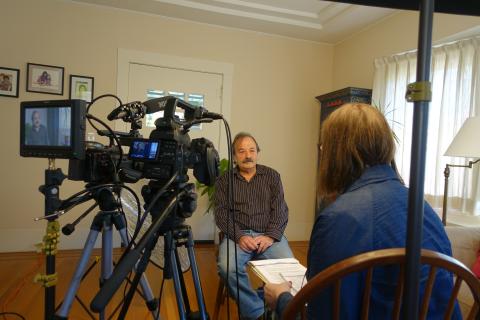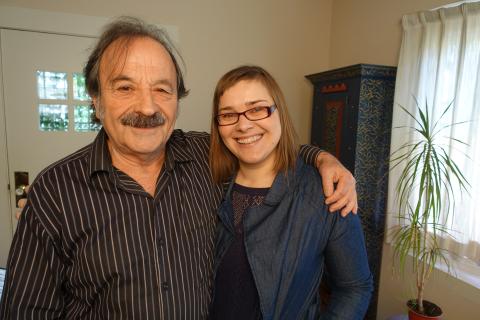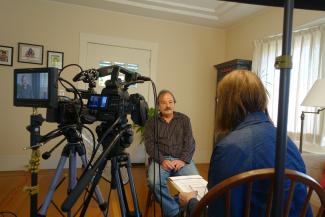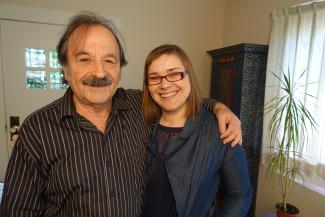The Yiddish Book Center's
Wexler Oral History Project
A growing collection of in-depth interviews with people of all ages and backgrounds, whose stories about the legacy and changing nature of Yiddish language and culture offer a rich and complex chronicle of Jewish identity.
Simon Dobjensky's Oral History
Simon Dobjensky, engineer, was interviewed by Agnieszka Ilwicka on March 29, 2017 in Albany, California. His parents were from a small predominantly Jewish town in Poland called Bełchatów. His father's father was a member of the Aleksandar Hasidic dynasty; his grandmother sold eggs to support the family. Simon's father was not fond of studying and became an apprentice to a weaver. His mother's family was better off – her father could read and write in Polish. When the Germans invaded Poland, Simon's parents fled to the Soviet Union. Returning to Poland after the war, they learned that most of those whom they had left behind ended up in the Lodz Ghetto and then were sent to Auschwitz. Simon's family spoke Yiddish in the home as well as Polish. He remembers the town where they resettled in Poland with its natural beauty and the ruins from the bombings. At a young age he did not understand what being a Jew meant and recalls being called a "dirty Jew" and having bricks thrown at him by Polish children. His family left for Israel in 1957. A new Polish government had come into power bringing a resurgence of antisemitism. Jews were allowed to leave the country, but they received one-way passports and their Polish citizenship was revoked. Simon remembers the trip to Israel via Vienna, a magical city which they toured by bus. Life in Israel was difficult at first; they lived for a while in a corrugated metal shack during a heat wave. He notes the differences between Israeli children who grew up with no fear and his own cohort of Polish-Jewish children raised in abject fear of authority figures and non-Jewish Poles. Simon learned Hebrew quickly and he still considers it his primary language. His father found a job as a weaver in Tel Aviv and they moved to Yafo, a town previously populated by Arabs. Most of their new neighbors spoke Yiddish, Bulgarian, Russian, or Ladino rather than Hebrew. He remembers listening to singers such as Theodore Bikel on Yiddish radio and sings some Yiddish songs. He notes that they often have rhythms borrowed from the cadences of Jewish prayers. Simon lived and worked in a kibbutz for five years before becoming disillusioned with that way of life. He felt that the kibbutz encouraged conformity, closed-mindedness, and ostracization. After living in Tel-Aviv for some time, he and his American wife moved to the United States. After his mother died, Simon joined a Yiddish group near his home in California to keep his memories of her alive. He hopes to pursue Yiddish studies more intensely once he retires. He feels that the future of Yiddish resides mainly in the Hasidic community and in academia. He describes some of the negative attitudes toward Yiddish-speaking Jews expressed by Israeli sabras (Jewish people born and raised in Israel/Palestine). For him, Yiddish calls upon an entire culture and way of life that exist only in memory and in the wonderful literature left behind by Yiddish writers.
This interview was conducted in English.
Simon Dobjensky was born in Poland in 1947.






